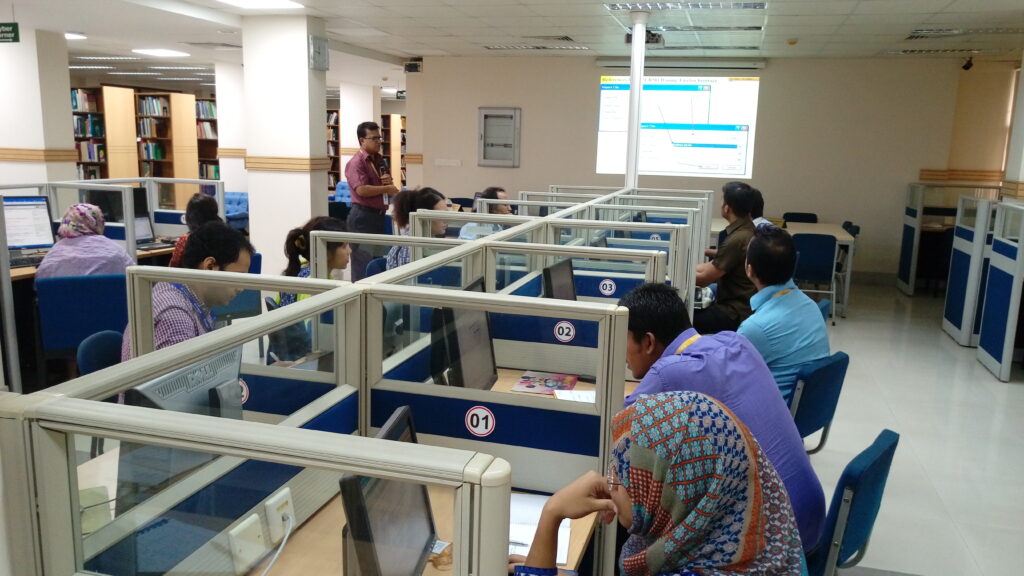Smart medical libraries for a ‘Smart Bangladesh’, the contribution of Research4Life

In February, Bangladesh marked National Library Day, highlighting libraries’ pivotal role in the journey towards a ‘Smart Bangladesh’. This vision aims for a digitally inclusive society by 2041, built upon four pillars: Smart Citizens, Smart Government, Smart Economy, and Smart Society. It aims to take advantage of digital innovations to bridge the digital divide, ensuring that everyone can thrive in a connected and empowered Bangladesh.
The role of medical libraries in digital transformation
In their paper, M. A. Mamun, a Research4Life Ambassador, and his colleague S. Rahman, explain how essential medical libraries are to Bangladesh’s healthcare modernization. They describe these libraries as crucial innovation hubs that use new digital technology to enhance education and research. By using Internet of Things (IoT), artificial intelligence (AI), and big data analysis, these libraries can offer better, more focused services to their users. This is an important step towards creating a more advanced and knowledgeable Smart Bangladesh. The article explains: “Universal access to health information is a fundamental indicator for bridging the digital divide between privileged and underprivileged communities to reach the superhighway of health information technology and accelerate the growth of health information systems”. Access to health information is essential for the economic progress of a county. And within the evolving field of healthcare, medical libraries play a crucial role in enhancing health education and supporting research. They articulate that: “There is an urgent need to develop smart library systems and services that can provide optimal support for academic, research, and evidence-based clinical decisions of health education in the country”.
Beyond access, real world impact of Research4Life
The paper mentions Research4Life as a notable contributor in improving medical libraries in Bangladesh. The Research4Life collection provides essential online resources, supporting over 244 institutions’ in Bangladesh, including 88 medical libraries today. A study in 2017 by M. A. Mamun, S Rahman and their colleagues showed how big of an impact Research4Life has made in Bangladesh. Looking at publication data between 1993-2013, ten years prior to setting up Research4Life in Bangladesh and ten years after, they found more health science research articles by Bangladeshi authors getting published both in international and local journals. They also saw an increase in how often Bangladeshi research is cited in public health science since 2004, and this number keeps growing. This boost in research and knowledge sharing shows how crucial it is to have access to health information. It supports the research field and matches the vision of Smart Bangladesh.
Meeting the SGDs through library modernization
Efforts to modernize medical libraries in Bangladesh through partnerships like Research4Life aredirectly aligned with the push towards a ‘Smart Bangladesh’. The increases in research publication and citations since the introduction of Research4Life show the role and impact of accessible health information in education and research. With the 2030 deadline for the Sustainable Development Goals approaching, the authors believe it’s important to have a clear plan for making library information systems and services more modern. Incorporating the latest information and communication technologies will not only enhance the quality of healthcare education and research but also ensure that Bangladesh’s health information infrastructure is robust, reliable, and ready to meet future challenges. This strategic focus on digital inclusivity and empowerment in medical libraries is essential for achieving development goals and fostering a healthier, more informed society.
Discover Research4Life
Research4Life provides institutions in lower income countries with online access to academic and professional peer-reviewed content. Find out how to get access.
Already a user? Discover our Training page, and find free resources to make the best use of Research4Life and improve your research skills.







